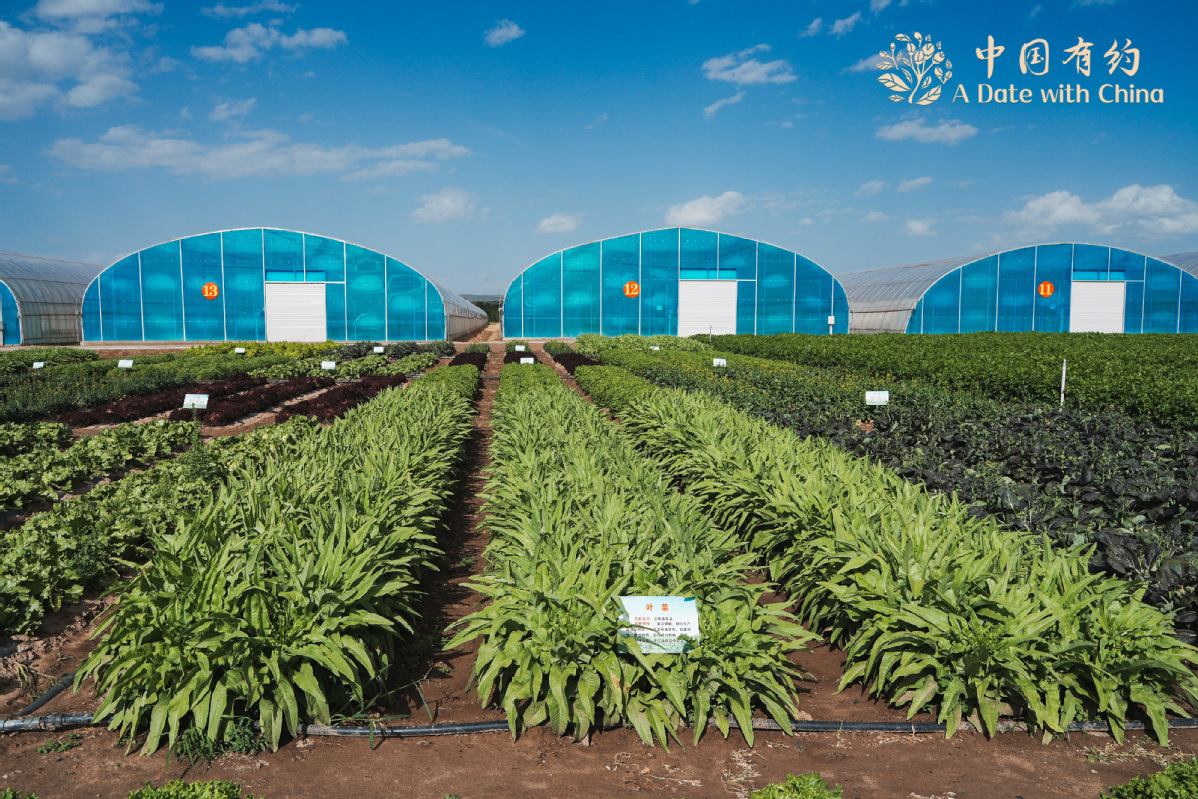Cool-weather crops heat up district's economy in Ningxia

A view of a modern agriculture demonstration area in Guyuan's Yaomo village. [Photo provided to chinadaily.com.cn]
Choy sum, a type of cabbage that is a common sight at dinner tables and Cantonese restaurants in South China, often comes from another part of the country entirely.
Yuanzhou district of Guyuan in Northwest China's Ningxia Hui autonomous region sells 70 percent of its cool-weather vegetables to other areas, making its vegetable industry a pillar of the district.
Lying at the eastern foot of Liupan Mountain at the southern tip of the region, Guyuan has an annual average temperature of 6.3 C and an altitude of 1,450-2,500 meters, perfect conditions for these crops.
"Cool-weather vegetables" refers to breeds produced in places with cool summer temperatures between 17-25 C. This includes cabbages, carrots and onions.
With five vegetable firms and more than 70 cooperatives involving 17,000 households of local farmers, Yuanzhou is estimated to reach a total output of 700,000 tons valued at more than 1.8 billion yuan in 2022.

A member of the "A Date with China" 2022 international media tour visits the agricultural demonstration area. [Photo provided to chinadaily.com.cn]
Crisp, tender, and lower in fiber and aftertaste, Yuanzhou cool-weather vegetables are sold en masse to the Guangdong-Hong Kong-Macao Greater Bay Area and the Yangtze River Delta.
Yao Xuan, Party secretary of Yaomo village in Yuanzhou, said the average vegetable plot can produce as many as three different kinds of crops a year thanks to mechanizing the whole process. Previously, it was limited to one.
Choy sum is one of the mainstays in Yuanzhou. The first crop is usually planted in March or early April. In less than two months, the vegetable can be served to people in the GBA. Shipping via cold-chain logistics takes less than 36 hours.
"More than 70 percent of disposable per-capita income comes from planting vegetables," Yao said, adding it had increased to 18,300 yuan in 2021 compared with 9,500 yuan in 2016.
"We received orders from the GBA and Yangtze River Delta before the planting season this year and each constituted 40,000 tons. We have expanded seedling space to meet the demand," Yao said.
Photos
Related Stories
- Desert turns into oasis in NW China
- China Ningxia wines participate in ProWein 2022 in Dusseldorf via video link
- China supports its Ningxia region in protecting Yellow River basin
- "Cow dung bank" innovates green farming in northwest China
- Pic story: inheritor of intangible cultural heritage of hemp weaving in Ningxia
Copyright © 2022 People's Daily Online. All Rights Reserved.









